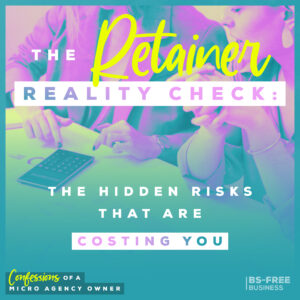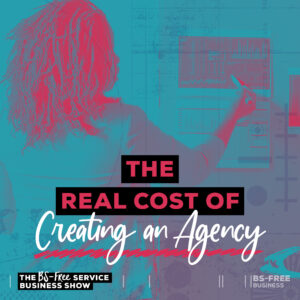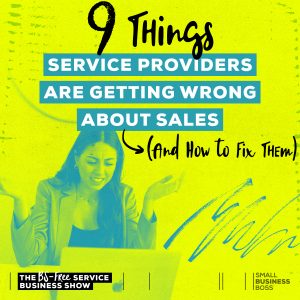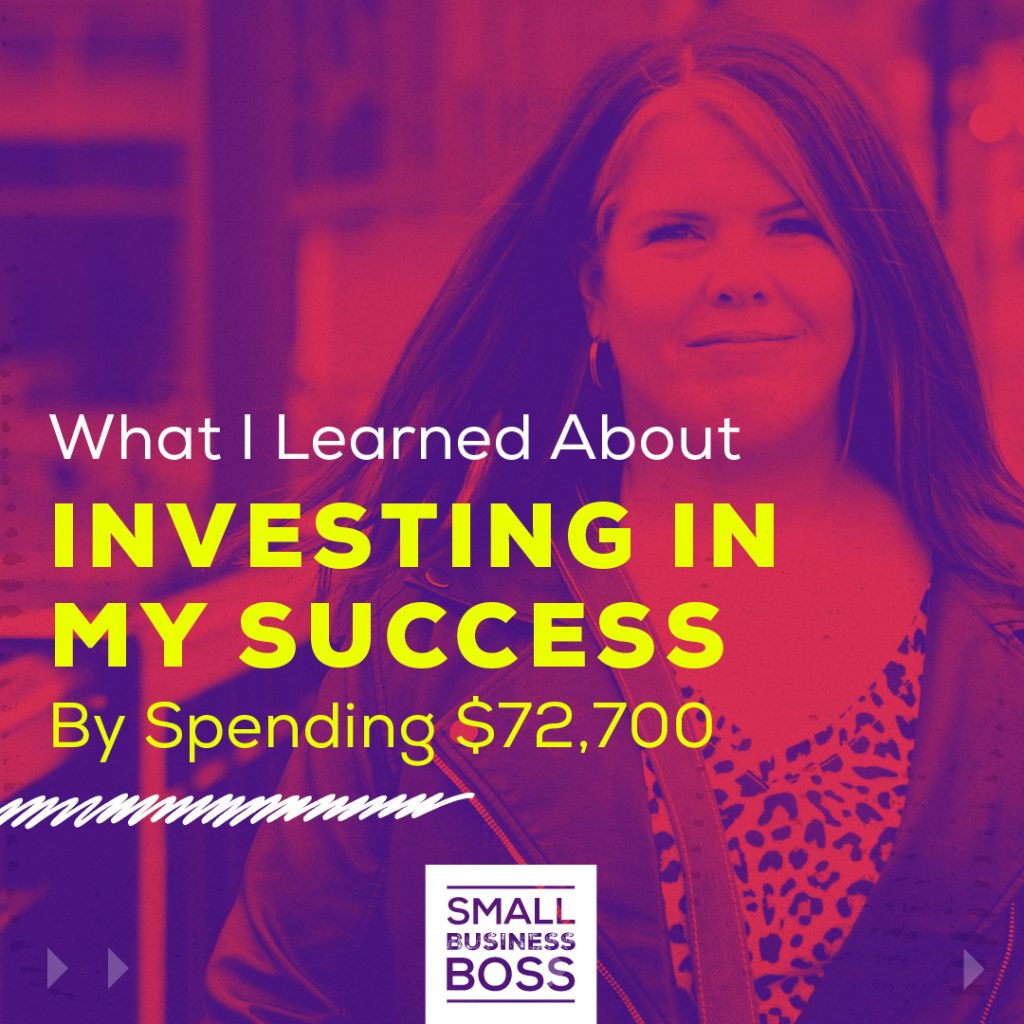
Search the site:
What I Learned About Investing in My Success By Spending $72,700
Back in 2013, I stumbled upon the online business world. At that time, I was running two businesses, one in the papercrafting industry as a blogger and teacher, and the other as a content marketing freelancer and consultant. I was looking for ideas on how to do things differently for both businesses and once I found this brand new world I was hooked.
While I was pretty convinced it was too good to be true (especially affiliate bonuses for big name programs), I was intrigued by the idea of doing business in a new way, and naturally, I was lured by the promise of making more money.
I mean, who hasn’t to some degree? Even if you’re a natural skeptic like me, it’s hard to resist.
Over the last seven years, I’ve spent my money on countless masterminds, programs and courses, and for the most part, they have one thing in common. Time and time again, I’ve failed to see a tangible ROI from these “investments” in my business.
It may sound dramatic (and to some of you incredibly negative), but it’s the truth. And before you dismiss me as a slacker, when I invest in something I take it seriously. I don’t spend my money easily, and I do my absolute best to do the work required. I show up, I participate, I contribute.
So let’s not immediately decide this is a “me” problem, when it’s actually a problem with how this industry works, and our expectations of what these investments can really do for us.
Here’s What I’m Not Going to Do
Before we dive into my list, I’m going to keep this to broad strokes as my goal with this post isn’t to call anyone out, but rather to carefully examine the culture of ‘investing’ in our businesses that’s cultivated in the online business world.
Day in, day out, we’re called to spend money as a way of investing in our businesses and ourselves. As a way to get what we want. To reach our dreams. To make more money. To have a bigger impact.
It’s an entire industry built on helping us build our businesses, and it’s designed to continuously extract more and more money from us. It starts with a low-priced course, but then you’re being told you need a $25k (or even $50k) mastermind to really make it.
That’s why I wanted to figure out if I’ve actually been able to accomplish those things. Is there a direct relationship between money spent and being able to accomplish my goals?
A Partial List of Things I’ve Invested In
Since 2013, I’ve spent I don’t even know how much money on coaching, programs and courses related to my business. And honestly, I could go pull the exact numbers, but I think it’s probably better if I don’t know at this point.
Instead, I’m going to focus on a few larger investments I’ve made in my business, and skip over the smaller courses that were skills-based. Typically, my experience with courses to learn a specific skill have been positive, so they can be omitted from this discussion. Also, I’m not including any money I’ve spent on services, as that’s a totally different thing.
Here’s a partial list of my investments:
- 1:1 coaching with brand name coach
- Big name business course
- Group program/mastermind (multiple rounds)
- Another six-month mastermind
- A year-long mastermind
- One year mentorship
- Leadership group program
- Platform-specific group program
- Copywriting certification program
- Leadership coaching
- Marketing consultant program
- Another year-long mastermind
Total price tag: $72,700
That’s an average of $9,000 per year. That’s not an insignificant amount of money, even if you’re making solid revenue, so it made me want to dig deeper into this culture of “invest in your business”. Especially as it’s positioned as a must-have to get what you want from your business.
The question is, did these investments help me grow my business? Did I reach my goals?
The answer….
What I Learned From My “Investments”
Of the 12 experiences outlined above, there are only three that I feel confident saying they have created direct ROI by helping me make more money in my business or by reaching specific goals.
Let that sink in. A total of three. THREE. That’s ¼ of total investments. Only 25%. WTH, right?
Then, there are three more on that list, where there was indirect ROI in the form of relationships I’ve built, or doors opened. Things like referrals, introductions, collaborations or other opportunities that have resulted. Or soft skills that have made me better as a leader or business owner.
Being generous, let’s say 50% of these investments were a solid success and helped me reach my goals. With that data, the odds of producing tangible ROI from a group program or mastermind isn’t at all guaranteed. (Despite what the shiny testimonials tell us, but more on that in a second.)
So what happened? Why did 50% of these experiences not deliver as promised?
In unpacking what happened, there are a few common threads that separate the ones I consider “successes” and the ones that were fails:
Big Promises, Little Substance
I say this with all the love in my heart as a marketer, but marketing is a tricky bitch. A thread that runs through most of these experiences is that they made big promises about what they could do for me and my business, but they didn’t have any substance to back it up once I was on the inside. Sometimes that was subpar content, other times it was a case of poor leadership and program structure, and in others, honestly, I still don’t know what the hell happened.
One-Size-Fits-All
For me, one of the biggest shortcomings of these programs was the one-size-fits-all nature of them. There’s no roadmap or business in a box that works for everyone, yet that’s exactly what a lot of these experiences delivered.
We’re not all the same, so trying to jam everyone into the same box simply doesn’t work.
And it’s not just the programs. The same goes for coaching. I definitely had some experiences where I felt like I was on a coaching conveyor belt and that the coach didn’t know anything about me or my business.
In fact, in one case, every single piece of advice I received was something I’d already done, but this particular individual didn’t know anything about me beyond my name and credit card number. In another, the coach didn’t have enough experience to be coaching anyone beyond doing exactly what she’d done to grow her own business.
No 1:1 Support
Another dealbreaker for me with these investments was the lack of 1:1 support. I’ve figured out I need to have a connection with the person I’m working with, and for guidance to be specific to my exact situation. While group coaching can be helpful and productive, it can’t be the only thing for me.
When I review the investments I’ve made, the ones that stand out to me and where I got the most value, I had an ongoing relationship with the person I was working with. They took the time to get to know me and my business and then provided specific guidance, not scripted advice.
There Aren’t Any Guarantees (No Matter What the Sales Page Says)
I’ve been sitting on this half-baked blog post for a while now, and it finally seems like the right time to put this out there.
The more downright sleazy marketing I see amid this pandemic, the more stressed out I get with people thinking they can spend their way to success.
As an industry, we’ve created this idea that you MUST do certain things like joining a high priced mastermind as the path to success. And that requires us to take our money and “invest” it in our future.
While I’m all for making strategic, intentional investments in our business, as we head into a recession and are on shaky financial ground, we need to talk about this.
There’s no guaranteed ROI from any investment you make in your business.
As I’ve detailed above, I have about a 50/50 success rate, and I’m confident that may be overly optimistic. In many cases, I’m including related items that have produced revenue or resulted in other decisions, like starting the mastermind I’ve run for the last four years. (Because, if you don’t like something, fix it and create your own is my motto apparently.)
When you’re being lured by the promises of these programs, it’s critical that you keep in mind that social proof in the form of testimonials shares the best-case scenario. They’re showcasing the best of the best, their rock star students.
They’re the literal after picture in a weight-loss ad with the asterisk followed by “results not typical”.
Can You Set This Money on Fire Right Now?
Growing up my father used to say “Don’t invest if you can’t put the money on the table and set it on fire.” While that’s not solid investment advice, it does speak to the fact that we need to be willing to get zero ROI and take a loss when we make these investments.
You need to decide if you’re okay with investing your money knowing you may not succeed. Knowing that you can settle for less than what has been promised. Knowing that you may not make your money back at all and actually end up in the hole.
Case in point: With one of these programs, my then business partner and I knew going in that there was the potential it wouldn’t accomplish what we wanted. But we did it anyway, agreeing that we were okay with losing that money. And good thing, because that was truly one of the worst experiences on the list. We literally took that money and set it on fire. (Not proud of this, but it is what it is. Learn from my mistakes here people!)
You may be wondering if I’ve had a 50/50 success rate, why I’d continue to spend my money. And that’s a great question.
For me, it came down to magical thinking that told me this time would be different. That this would be the investment that would change everything. That if I just worked hard enough and followed the plan, I’d be the star student. (Sound familiar?)
Plus, my magical thinking was fueled by sunk cost fallacy decisions, where I thought because I’d already invested both my time and money, so it wasn’t time to quit. What if this next thing was the one that made ALL the difference?
While that worked in some cases, it didn’t in others, which has led me to completely rethink how I spend money in my business over the last three years. Because while I can credit some of the investments I’ve made with big leaps forward in my business, others had exactly zero impact.
Investing Wisely in Your Business
Through all of this, I’ve learned that you can do everything right and that you still may not get what you’re expecting. That the ROI may not follow, and that’s okay as it’s forced me to become incredibly discerning about how I spend my money.
First, I’ve adjusted my expectations. I no longer expect a course or program or mastermind to get results for me. I’m in charge of results and going into any experience, I need to be very clear what I’m looking for.
With the mastermind I’m currently in, the reason I joined was for the relationships. I have no expectations of anything else beyond expanding my current circle and connecting with some great people. (And I don’t mean in a gross buy your friends kind of way that results in a promotional bonanza.)
I’ve also put in place strict budgets for what I’m going to spend on training and coaching in a year. Having a line item means every decision is made with the budget in mind. And guess what? The more specific I’ve been in what I’m willing to invest in, the fewer “bad” investments I’ve experienced.
Last year for example, coaching and training was 2% of my total revenue. That was less than budgeted, and instead of risking my money on yet another program, I invested it in myself by giving myself a salary bump.
With a budget and plan in place, I’m able to avoid impulse purchases and, more importantly, not have to go into debt to pay for anything. That means I have a waiting period when making decisions and I don’t buy anything when there’s a hard deadline requiring me to buy by 11:59 pm before it’s gone forever.
I’m not sharing this because I’m perfect, but rather because maybe you can take something away from my experiences. Maybe it’s feeling less weird about not spending your money the same way as your peers, or figuring out how to get out of the endless cycle of trying to spend your way to your ultimate goal.
Spend or Skip It? Here’s My Take.
Should you spend or should you skip it? I’m no financial expert, but here’s my take.
In the current financial climate, our defences are down and many of us are more vulnerable than normal. And there’s zero shame in that, but we need to be extra vigilant, especially when it comes to the “invest in yourself” trope.
If you hadn’t planned on joining a mastermind or a program before COVID-19 became a reality, then don’t do it now. If you didn’t have it planned eight weeks ago, you don’t need it right now.
And if you’re being sold something that tells you that you need to go into debt to invest in yourself, that’s a hard pass. I mean, check out this gem shared by my friend Joel Klettke:
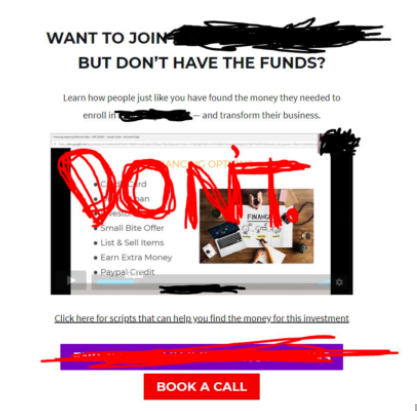
Keep in mind, that call to “do what it takes” isn’t always this blatant.
Other times it’s more covert:
- A well-placed story about how the coach you’re considering working with had to use three credit cards to pay for her first mastermind. Or a rags to riches tale involving made-up extreme hardship and living in a van down the river.
- Telling you that you have “mindset” issues if you’re not willing to open up your wallet or implying you’re never going to make it.
- Claiming the proven roadmap for pivoting your business in a pandemic includes a new business model or the path to easy street is with courses.
I call bullshit on every last bit of it. It was BS in 2019, and it’s an even bigger load of BS right now.
Yes, there are investments worth making, but anyone preying on you like this needs to fuck right off. (Especially in the middle of a pandemic. How disgusting are these people!?!?!)
I’ve been a business owner for a long time now and “doing what it takes” has never meant mortgaging my future by opening up two new credit cards. And it’s definitely never required me to act recklessly in an effort fueled by blind faith in order to reach my goals.
What it’s really taken is doing the damn work. Not thinking about it, talking about it or learning about it, but actually doing it.
I know that’s not what people want to hear, but that’s really the recipe for success. I know in my case, there’s been nothing fancy or special about what I’ve done. Not a single thing. It’s about doing the work and focusing on the fundamentals.
That holds true now more than ever.
While some of my investments made a difference, just as many didn’t do anything but waste my time and money. And I’m definitely not alone in that.
Yet, magical thinking keeps us searching for “the one” that’s going to be the one thing that changes our business and life.
The truth is there’s no one thing. It’s many things that add up to reaching our goals, and most of all, it’s being realistic about what any one program, course or mastermind can *really* do for us. It’s being smart about what will really serve us, and not spending money that simply funds someone else’s dreams.
With that lens, we need to spend our money differently. We need to stop putting our hope (or our financial future) in anyone else and rely on ourselves.
We need to do the damn work.

I’m Maggie Patterson (she/her), and services businesses are my business.
I have 20+ years of experience with client services, am a consultant for agency owners, creatives, and consultants, and vocal advocate for humane business practices rooted in empathy, respect, and trust.
Read or Listen to the Latest
For Solo Business Owners

Growing a solo service business is tough.
It’s even harder when you’re bombarded with BS advice that steers you away from your values and why you started your business in the first place.
This is the podcast for solo creatives and consultants who want to remain as a team of one and have zero interest in the hustle and grind of typical business teachings.
Subscribe now and never miss an episode.
For Micro Agency Owners
Most podcasts for agency owners obsess over revenue growth as the ultimate success metric.

But here’s the truth: not everyone wants to make millions. Your goal might be to build a sustainable business that lets you have a life and doesn’t run you into the ground.
Join me as I spill my shameless confessions and share everything I’ve learned about building a micro agency that skips the BS of tired and typical agency teachings.
Follow Now on All Major Podcast Platforms
